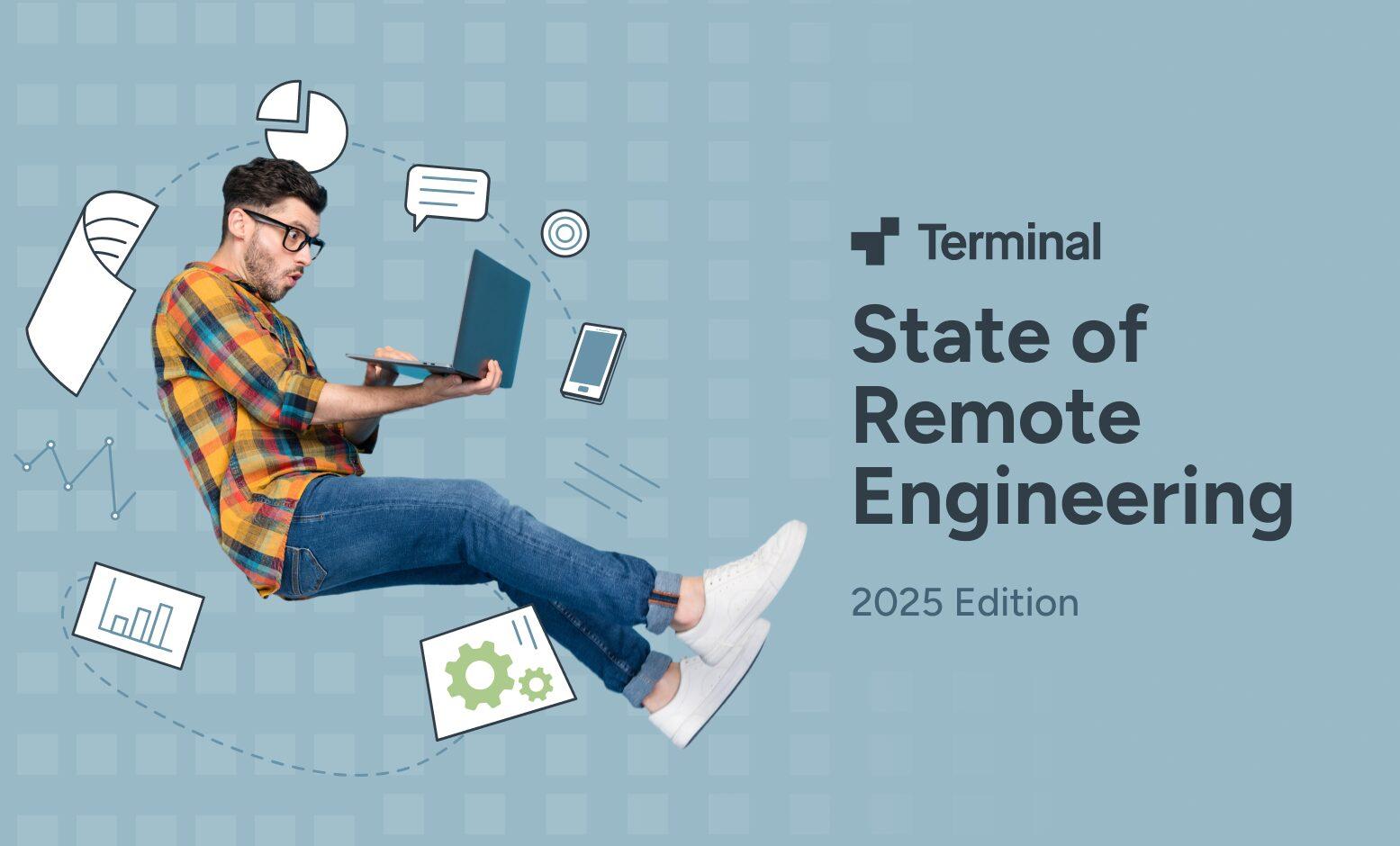
Hiring + recruiting | Blog Post
Beyond Code: The Power of Soft Skills for Software Engineers
Laura Berlinsky-Schine
Share this post
Your code won’t carry you.
Eighty-five percent of job success comes from possessing well-honed interpersonal skills, while only 15% comes from hard skills, according to research by Harvard University, Stanford Research Center, and the Carnegie Foundation. Here’s the bottom line: soft skills for software engineers are essential.
Why Soft Skills Matter for Engineers
While technical skills have long been the determining factor in hiring qualified engineers, interpersonal qualities and competencies often give both candidates and their companies an advantage over those relying solely on hard skills.
Technology professionals with at least one soft skill, including communication, leadership, teamwork, or problem-solving, are promoted 13% faster than those who only have hard skills.
Technical expertise isn’t enough for an individual or business to succeed. It’s crucial for engineers to have soft skills to enhance collaboration and problem-solving and drive innovation and creativity. These skills improve relationships with team members and stakeholders. They allow people to adapt to frequently changing environments. And they cultivate stronger remote work dynamics — essential in today’s environment.
Key Soft Skills to Look for in Engineers
Soft skills contribute to a more successful workforce. They help software engineers work well independently and with others. There are plenty of interpersonal skills that foster a better working environment; these are some of the most important ones developers should have.
Problem-Solving
In 2024, problem-solving was cited as the most sought-after soft skill for global IT professionals. This soft skill is central to the software developer’s role — their job is to transform complex problems into realistic solutions through ideation and code.
You want an engineer who can think on their feet and come up with creative ways to grapple with intricate issues, such as problems that interfere with the user experience, performance challenges, and more. By coming up with innovative solutions, they make better software.
Communication
Across occupations, communication is the most in-demand soft skill, irrespective of company size or core business, according to one study.
Despite their focus on technical work, engineers must be able to articulate their ideas verbally and in writing. They’re frequently tasked with presenting complex information to technical and non-technical stakeholders.
Emotional Intelligence
Emotional intelligence is essential for managing the emotions and personalities of team members and stakeholders. It facilitates stronger communication, allows individuals to cope with stressful and high-stakes scenarios, and enables better conflict navigation.
Because collaboration is an essential part of the software development process, every engineer should have a high EQ. With this soft skill, you’ll be better equipped to manage diverse personalities and situations.
Ethical Decision-making
The vast majority of professionals believe ethical issues exist and should be improved in engineering, according to a survey by the International Conference on Engineering Education (IEEE). With innovative — yet controversial — technologies like AI taking center stage, it’s pivotal for software engineers to be capable of ethical decision-making.
Engineers must be able to identify challenges and make sound decisions. This will help them build trust and credibility — for both their careers and your business.
Identifying Soft Skills During the Hiring Process
It can be difficult to identify soft skills for engineers during the hiring process, especially for remote workers. But it’s certainly possible to pick up on cues and qualities.
Behavioral Interview Questions and Collaboration Simulations
Interview observations can help you see candidates flex their soft skills first-hand. Even over Zoom, you can pick up on various behaviors and attitudes.
Behavioral interview techniques are a more formal means of sussing out soft skills. Through behavior-based questions focusing on hypothetical and past scenarios, you’ll get a better sense of how candidates would react in various contexts. Or, introduce collaborative or role-playing scenarios to observe their teamwork, communication, critical thinking, and leadership skills.
Claus Jensen, former chief digital officer and chief technology officer at Memorial Sloan Kettering Cancer Center, also suggests asking open-ended questions along the lines of, “What question haven’t I asked that you wish I would ask?” The candidate’s answer, he says, can be illuminating.
For example, if they have no response, “That basically tells you that they’re checking the boxes but are not necessarily the kind of person who will look for an iterative approach to a problem, because they would have picked up the gauntlet and given me a different answer than ‘You’ve asked all the questions,’” Jensen said at the virtual MIT Sloan CIO Symposium.
References and Referrals
Past work is another indicator of an engineer’s abilities soft skill-wise. Reference checks and referrals will give you insight into not only technical competencies but also the candidate’s interpersonal qualities.
Testimonials from past employers or clients can reveal how the software developer works with others, communicates, solves problems, and so on.
Strategies to Nurture Soft Skills in Engineers
Like any other skill, soft skills evolve. As an employer or leader, you should always nurture and develop these qualities in your software engineers.
Constructive Feedback
Eighty percent of employees who say they’ve received meaningful feedback in the past week say they’re fully engaged, Gallup data shows.
Rather than delivering feedback during scheduled intervals, such as annual performance reviews, make it a habit to offer it frequently. This helps software engineers understand their weaknesses and nurture their strengths. It’s important for all of us to improve, learn, and grow.
Remember: Feedback isn’t just about correcting errors. It’s about giving meaningful ideas and paths for improvement, as well as acknowledging the positive aspects of the employee’s performance.
Encourage others, including peers and direct reports, to deliver feedback, too. This can take place during code reviews and team meetings, for example. By involving individuals with different roles and at different career stages, the engineer will gain diverse perspectives on their soft skills and performance.
Learning and Development
Soft skills aren’t necessarily innate. Many businesses invest in their employees’ development by offering learning opportunities, such as focused training and workshops on leadership, teamwork, conflict resolution, or emotional intelligence.
Learning and development opportunities aren’t punishment for software engineers with “weak” soft skills. Instead, they are a chance for all individuals to grow and enhance their skills, setting them up for greater career success.
Mentoring
A staggering 90% of employees with a career mentor are happy at work. Not only can mentorship lead to stronger engagement and contentment — it can also be pivotal in helping engineers develop their interpersonal skills.
Formal mentorship programs that pair seasoned engineers with junior ones allow less experienced professionals to observe the important skills and qualities they need in their more experienced counterparts. Moreover, mentors can suggest other ways for mentees to cultivate the soft skills they need.
Leadership Opportunities
Leadership opportunities aren’t solely about leadership. They also help software engineers practice communication, problem-solving, decision-making, collaboration, and conflict resolution.
Give team members opportunities to lead small projects or represent their teams in meetings, especially for cross-functional initiatives. That way, even junior engineers will get the chance to develop important soft skills that will serve them well and help them expand their capabilities.
Conclusion
Software engineers must have more than technical skills. Soft skills are essential for succeeding and contributing to tech teams.
Of course, identifying soft skills in engineers during the hiring process is only half the battle. Nurturing and growing these qualities is equally important.
A final note: Be mindful of biases when focusing on soft skills in engineers. Remember that different cultures may have different perspectives on these skills. When you’re working with diverse team members, you should acknowledge and strive to understand where everyone is coming from. This will contribute to a more harmonious and collaborative team composition.


